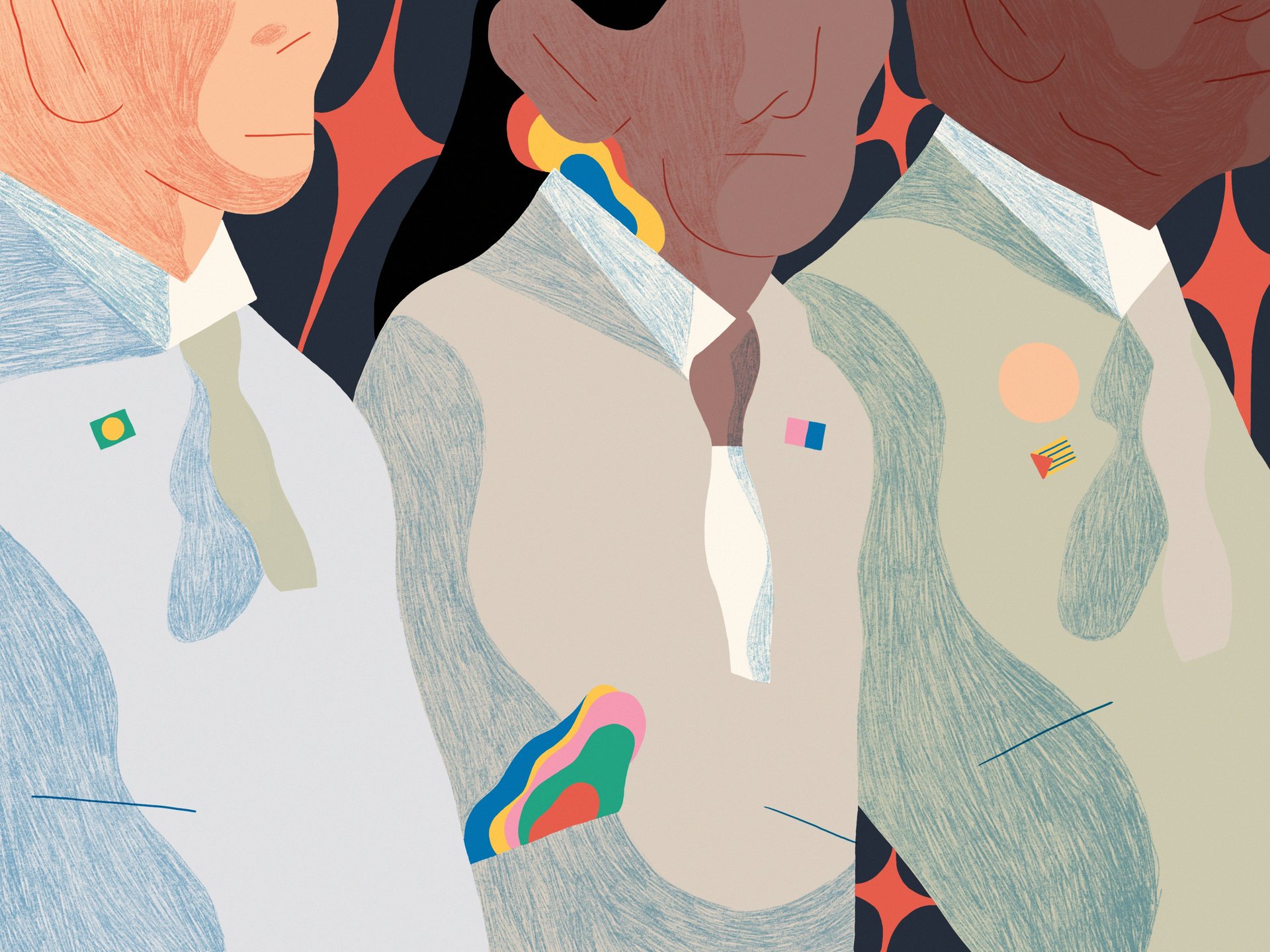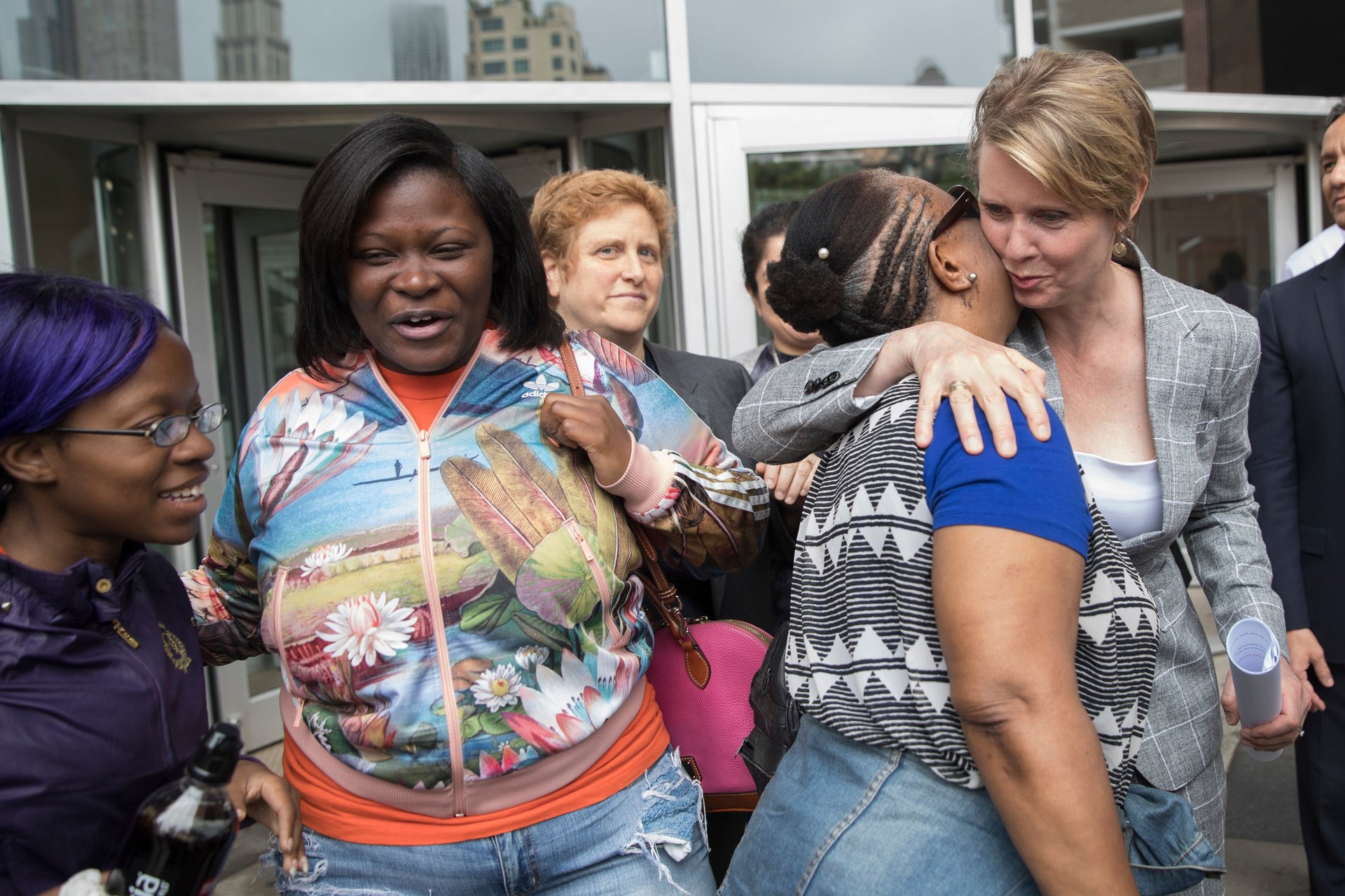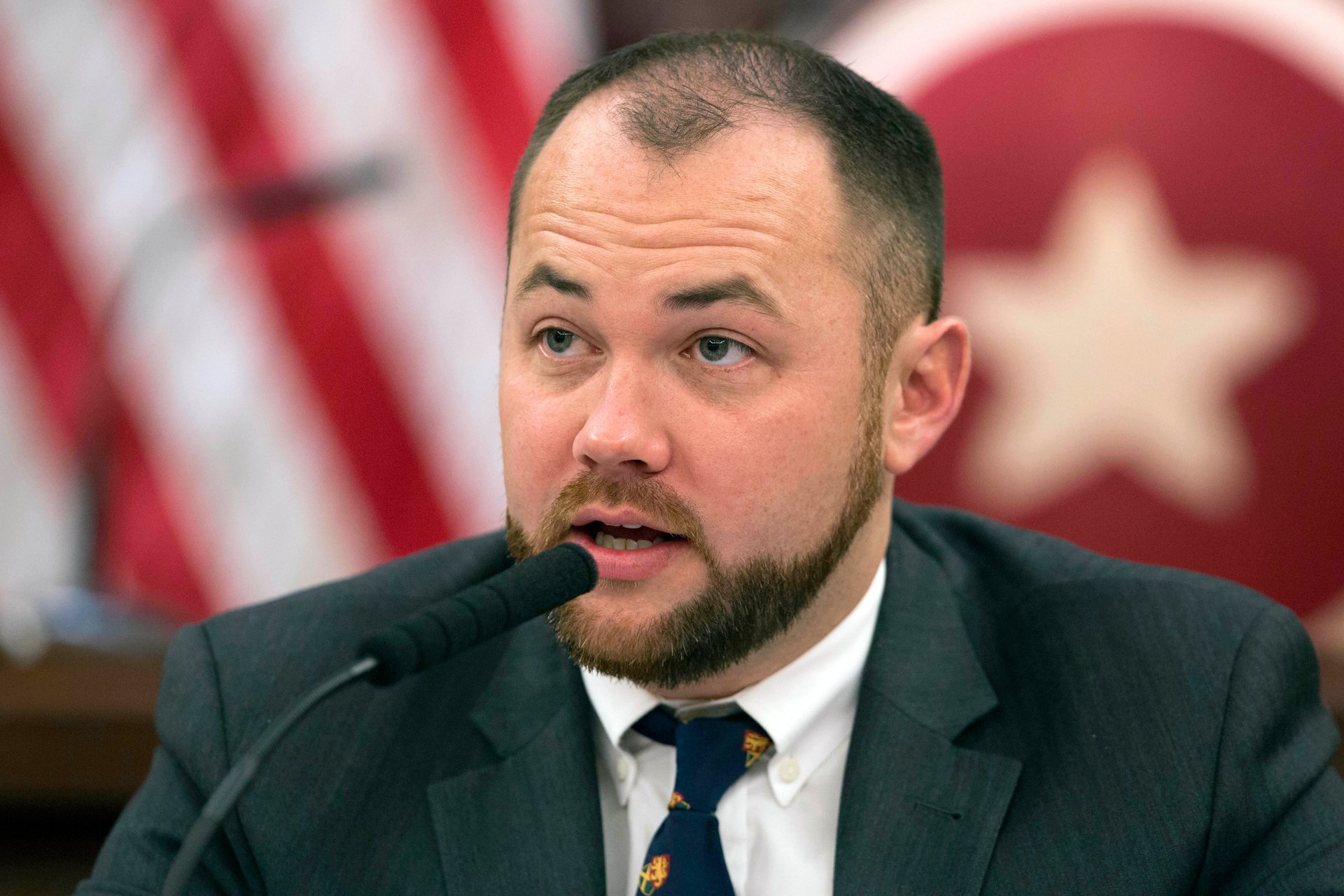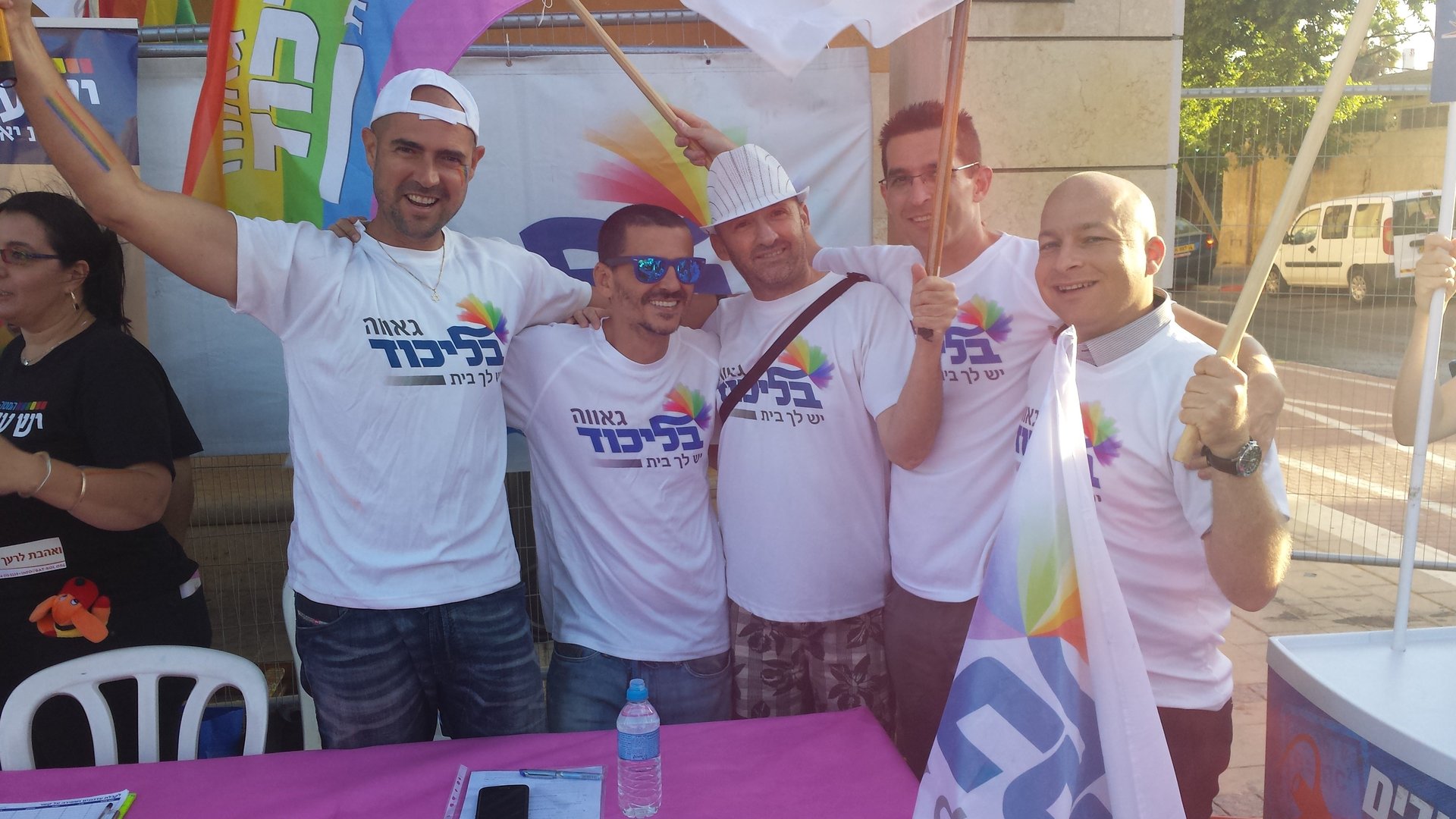The LGBT political glass ceiling is cracking wide open
The list of countries that have been led by an openly LGBT person is short, but growing fast.


The list of countries that have been led by an openly LGBT person is short, but growing fast.
It was only in 2009 that Iceland’s Jóhanna Sigurðardóttir was elected, becoming the first openly LGBT person in the world to serve as a prime minister. In 2011, Belgium’s Elio Di Rupo became prime minister. In 2013, in neighboring Luxembourg, Xavier Bettle was voted prime minister—a position he still holds. He has since been joined by two additional LGBT leaders: Serbia’s Ana Brnabić, and Leo Varadkar of Ireland, a country that only decriminalized same-sex relations in 1993.
These leaders belong to a club of openly LGBT politicians that was all but inexistent only 40 years ago, but is now finally reaching their nation’s highest offices, while advocating for issues that go far beyond sexuality and gender identity.
It’s the moment(um)
With the exception of the Soviet Union’s Georgy Chicherin, an openly gay Menshevik named commissar for foreign affairs in 1918, the first LGBT person to hold a prominent public office was Coos Huijsen—who came out as gay the year before he joined the Dutch parliament in 1977.

Today, at city, regional and national levels, several thousand openly LGBT politicians have entered the scene—a trend that shows no signs of slowing down. The 2017 elections in the US, for instance, saw important successes for LGBT candidates around America—primarily, but not exclusively, within progressive voters. The number of American LGBT mayors is up to 23—one of them, Peter Buttigieg, is a rising democratic star serving in conservative South Bend, Indiana who came out on the pages of his local paper while in office. Last weekend he married his partner as his town celebrated Pride with the rest of America. In the same year, in the UK, 35 LGBT representatives were voted into parliament (on both sides of the aisle).
As the US approaches the politically hot summer of 2018, a record number of LGBT candidates (over 400) are running for office—from city councils members to governor. They include high-profile personalities—such as infamous whistleblower Chelsea Manning, who will be contesting a Maryland Senate seat, and actor Cynthia Nixon, who is challenging New York’s governor Andrew Cuomo. Perhaps most excitingly, this year’s Texas governor’s race features a major first: Lupe Valdez, who—if elected–would be the nation’s only Latina and lesbian governor.
Coupled with the progress in terms of marriage equality and civil unions across the western world (as well as parts of Latin and South Africa), the LGBT political class ceiling—the so-called “lavender ceiling”—appears to finally be cracking. But how deep are these cracks? And what are their consequences?
Painting the town hall rainbow
In a city like New York, home to many historic LGBT milestones, 36-year-old Corey Johnson is still making history. The New York City council speaker is not the city’s first high-ranking LGBT politician; his predecessor, Christine Quinn, is gay, as are five of 51 current council members. But in addition to his sexuality and his youth, Johnson is the only HIV-positive elected official in New York state.

Despite the relative diversity of New York City’s political scene, Johnson rejects the idea that being an LGBT representative shouldn’t matter. ”Being gay is not like having blue eyes,” he says. He considers his sexual orientation an integral part of his identity—the way he lives, who he loves—and says it will always be associated with his political persona.
That persona is, after all, what got him here. Despite being co-captain of his Massachusetts high school’s football team, Johnson says he was “an openly gay, despondent, suicidal teenager.” LGBT leaders who came before him were his lifeline and role models—folks Harvey Milk and Larry Kramer, of whom he has photos in his office. Johnson hopes to serve the same role for the next generation. He is expected to run for mayor of New York City in 2021 (potential slogan: “Stop Fucking With Us“); were he to win, Johnson would be the first openly LGBT mayor in the city’s history.
Johnson points out that voters across the political spectrum tend to choose candidates based on “bread-and-butter issues”—health care, education, welfare—more often than gender or sexual orientation. Danica Roem, for example, was elected last year as the first transgender member of the Virginia senate. While her sexual identity was part of the debate, Jonnson says the race was ultimately “won on the issue of transportation.”
Still, he cautions against a false sense of complacency. “One of the first things I said [after marriage equality was passed] was that people would pull back on their activism,” Johnson says. Indeed, according to a survey published by GLAAD (pdf), a media-monitoring organization focused on LGBT rights, there was a shift in public support for LGBT cause in 2017. Today, more people are showing some amount of discomfort with LGBT issues and a growing number of non-LGBT people are becoming “remote supporters” rather than allies.
Unsuspected places
Strong LGBT representation in New York City may be unsurprising. But elections in other parts of the world show acceptance spreading to new levels. Heavily Catholic Ireland, for instance, voted not only in favor of gay marriage, but in favor of an openly gay Taoiseach (prime minister) in Leo Varadkar. Patriarchal, male-dominated, traditionally homophobic Serbia, too, surprised the world by electing a lesbian, Ana Brnabić, to lead the government. And while a map of the Middle East remains discouraging for LGBT rights, tangible progress is being made in Israel—even amongst conservatives.
Amir Ohana, who in 2015 became the first openly gay conservative representative in the Knesset (Israel’s parliament), says LGBT acceptance in the country is growing, though it’s “a matter of evolution, rather than revolution.” Visibility is key to that evolution. “You can legislate against hate crimes, but you can’t legislate against hate,” Ohana says. The only way to fight hate is to encourage diversity.

The change in perception, he says, has been particularly impressive among ultra-orthodox Jews, which comprise an important component of Israel’s population and political class. Barely a decade ago, Ohana recalls, members of ultra-orthodox political parties would speak about LGBT people as something that needed to be “treated, like the bird flu.” The demographic has since become more tolerant, which he views as a consequence of increased familiarity with LGBT people like himself.
Ohana quotes a right-wing ultra-orthodox politician who said during a debate that he couldn’t sanction same-sex marriage, but could acknowledged that LGBT people are part of society. “He would still vote against us,” Ohana says, “but the terminology has changed.” Simply by their mere existence and work in the Knesset, he says, members of the LGBT caucus managed to “get the homophobes into the closet.”
Beyond identity
In addition to representation, it’s also important that LGBT candidates aren’t reduced to just LGBT issues. This is a stance Ohana clearly embraces, as a member of the hawkish, right-wing Likud party. Back when he first joined Likud, many members “thought I was the first gay [person] they had ever met,” he says. Yet for them, as well as the larger Israeli society, “when they see me, ‘gay’ isn’t the first thing that comes to mind, but my actions and views.”
Ohana concedes that LGBT issues are typically the domain of progressives, but says that baking them into the conservative agenda taps into an electorate that would otherwise vote left almost by default. He likes to quote David Cameron, who “once said ‘I do not support gay marriage despite being conservative but because I am conservative.'”
The current movement, however, seems to suggest something larger: LGBT issues finally transcending political affiliation, and becoming everyone’s to care for, in turn freeing LGBT politicians to stand for whatever they please.
This story is part of our series on Global Pride.